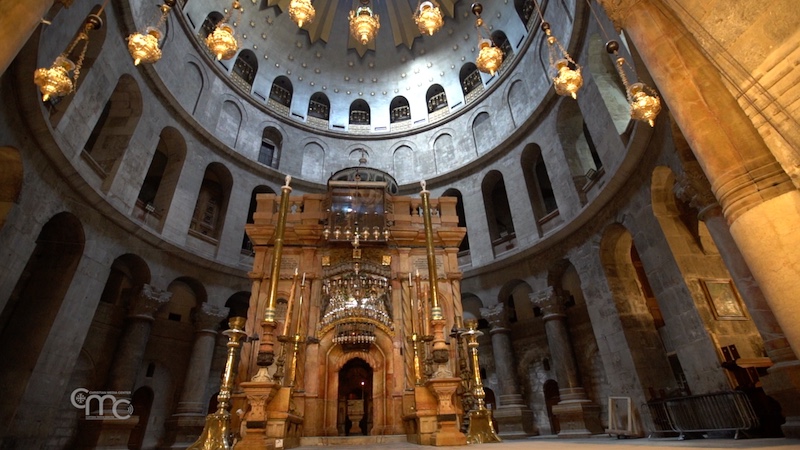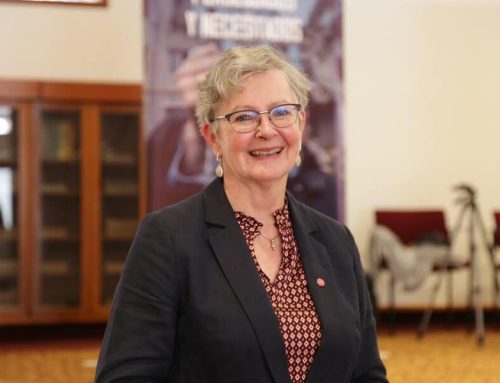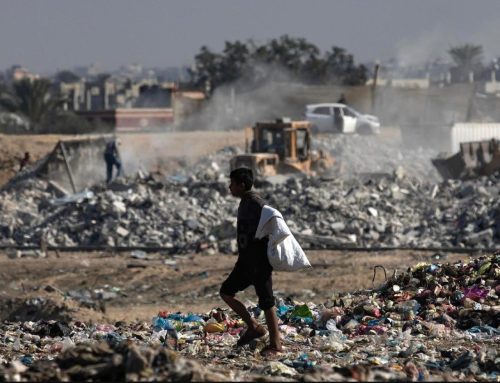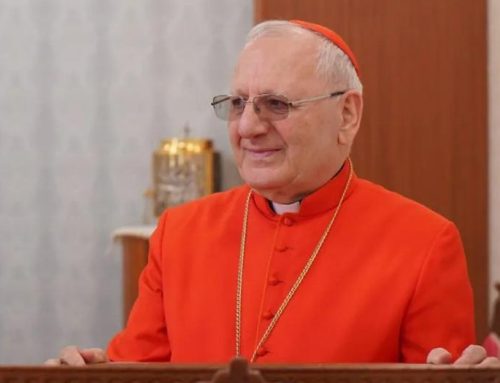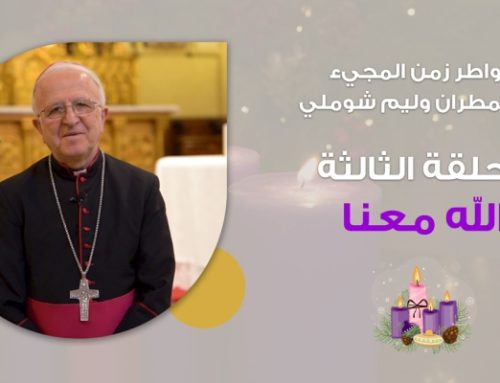An important update on the ongoing archaeological excavations in the basilica of the Holy Sepulchre in Jerusalem was published on 21 August. The team of archaeologists from the Sapienza University of Rome, led by Professor Francesca Romana Stasolla, provided an update on the ongoing research in the basilica. At the same time, the archaeological excavation site was visited by the Greek Orthodox Patriarch Theophilos III and members of the Custody of the Holy Land and the Armenian Patriarchate, representing the main Christian Churches responsible for the basilica.
PROF FRANCESCA ROMANA STASOLLA Sapienza University of Rome The entire floor restoration project started in 2019 with the restoration of the floor, the infrastructure and the archaeological excavation. Then the Covid pandemic occurred. In March 2022, the community leaders symbolically removed the foundation stone and at the beginning of May 2022, we started excavating. From there, we continued unabated with a short interruption of a month and a half after the events of 7 October. In the words of Prof. Francesca Stasolla the stages of the works.
PROF FRANCESCA ROMANA STASOLLA Sapienza University of Rome We have now excavated most of the interior of the church. The entrance area, part of the North Nave, is left to us. We have also had the opportunity, thanks to the willingness of the Franciscan community, to re-excavate areas that had already been excavated by Father Corbo. This was mainly in the Magdalene area and also in the sector that we have just completed, which is part of the north apse of the Rotunda.
PROF FRANCESCA ROMANA STASOLLA Sapienza University of Rome There we found not only the continuation of the cistern that collected water from the Rotunda, the rainwater that then channelled it. But also the medieval arrangement from the Crusader period of the apse and the Rotunda with a floor made of small marble tiles. Most of them are recovered from Roman-era constructions. This is a very common use in cities with a monumental Roman past. Hence the arrangement of the chapel and altar. In the course of the work, the Anointing Stone was also restored. A careful analysis of the Calvary rock made it possible to document the cuts made to carve out part of a staircase for access to the chapel above, where the Crucifixion is venerated.
Pilgrims also await the new flooring of the Basilica with curiosity.
PROF FRANCESCA ROMANA STASOLLA Sapienza University of Rome Of course it is the last stage, but now that we have finished whole areas, such as the Rotunda, we are getting ready to start repaving. I think that in a few months pilgrims will also be able to start seeing the new paving.
By cmc-terrasanta.org

